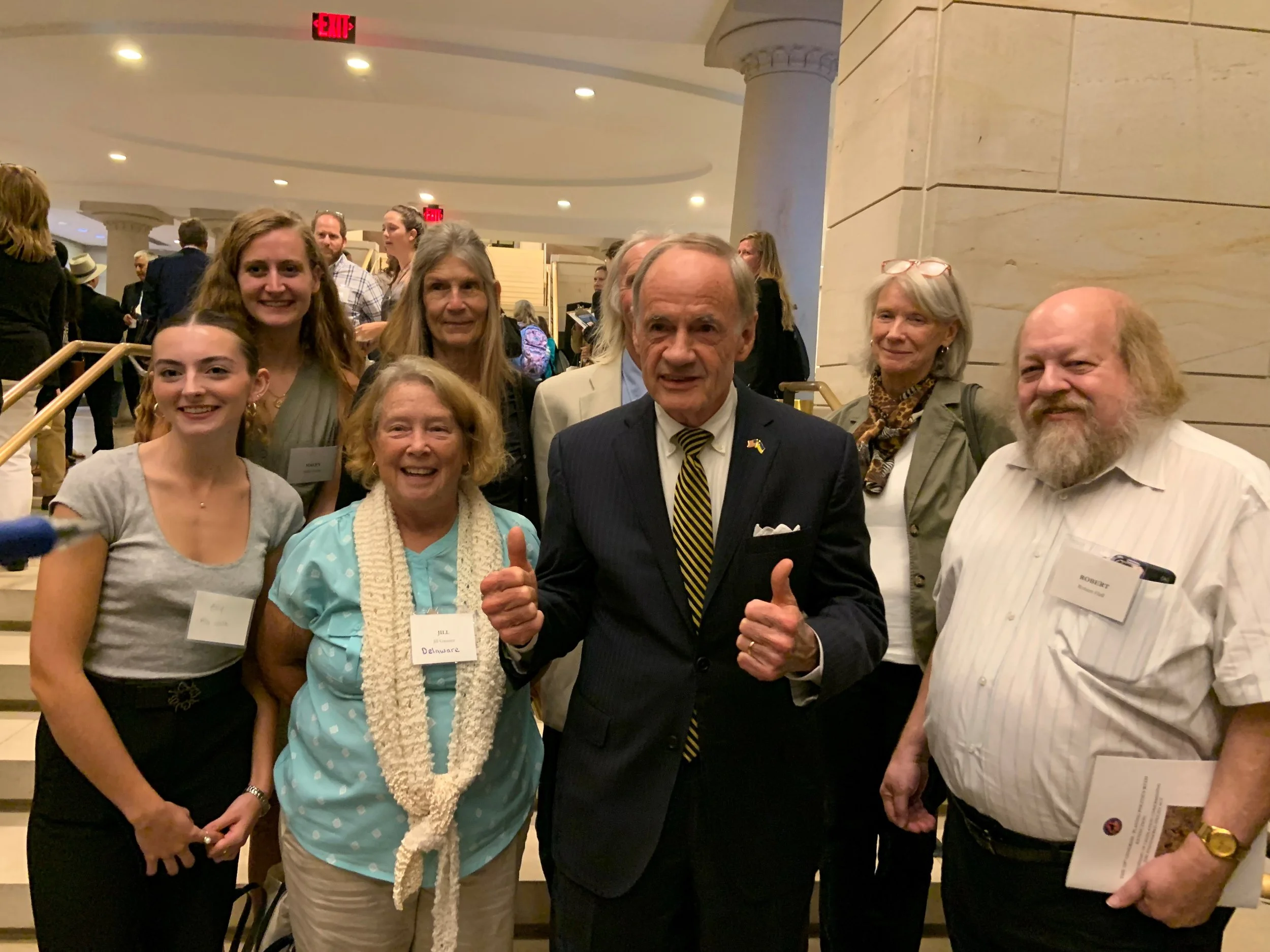Senator Tom Carper and the Delaware’s wildlife advocates at the U.S. Capitol Visitor Center.
On September 12-13, Delaware Audubon joined wildlife activists from 13 states to mark the 50th anniversary of the Endangered Species Act. The 70+ activists participated in 27 meetings with Congressional staff and members to promote continued support of the landmark legislation which provides protection for nearly 2,370 species which currently face varying risks of extinction.
The species of greatest concern in Delaware is the red knot, which was listed as Threatened in 2014 by the U.S. Fish and Wildlife Service. Since that time, the number of red knots observed stopping in Delaware during their spring migration has continued to decline. The number observed in 2023 was the lowest on record. Although red knots face numerous threats, the lack of horseshoe crab eggs on Delaware Bay beaches during the spring stopover has a significant impact.
Unlike the states of New Jersey and Connecticut, Delaware continues to allow a harvest of horseshoe crabs, despite the red knot's listing under the Endangered Species Act. The effort to enact moratorium legislation in Delaware is at a stalemate because of opposition from the part-time fishermen who remove horseshoe crabs from the beach while they are spawning.
In the face of this stalemate, an approach to consider is to simply buy the crabbers out. Congress can help by allocating federal ESA funding for this red knot recovery effort. Senator Tom Carper, who has demonstrated interest in protecting the red knot, can help by supporting the spending request that we made during a meeting in his office. That help is essential to recover the red knot, conserve the horseshoe crab and ensure fair compensation for the impacted fishermen.
As Chairman of the Senate Environment and Public Works Committee, Senator Carper has the means to find a way to protect Delaware's iconic red knot. Doing so will seal his legacy as a defender of Delaware's valuable natural heritage.
Wildlife advocates from 13 states on the 50th anniversary of the Endangered Species Act.

